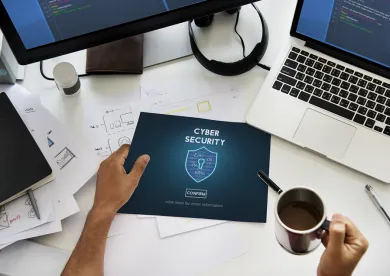South Dakota has become the 49th State to enact a data breach notification law. South Dakota Governor Dennis Daugaard signed SB 62 into law on March 21, 2018. The law will take effect on July 1, 2018.
As with similar measures pending in other state legislatures, SB 62 was introduced in the South Dakota Senate on January 9, 2018, in the wake of the disclosures relating to the Equifax breaches. The law generally mirrors those of many other states, but includes a few new wrinkles.
The new law generally requires an “information holder” to notify South Dakota residents of any “breach of system security” involving their “personal or protected information.” An “Information holder” includes “any person or business that conducts business in the state” and owns or retains “personal or protected information” of South Dakota residents. “Breach of system security” is limited to “unauthorized acquisition” (as opposed to unauthorized access) of unencrypted computerized data or encrypted data where the decryption key is also acquired by an unauthorized person.
Notification must be made to any South Dakota resident “whose personal or protected information was, or is reasonably believed to have been, acquired by an unauthorized person.”
The categories of “personal or protected information” include the usual suspects, plus some newer types that states have begun including within their data breach notification laws. “Personal information” includes first name/first initial and last name in combination with: (1) social security number; (2) driver license number/other unique ID created or collected by a government; (3) account number, in combination with an access code/routing number; (4) health information as defined in HIPAA (45 C.F.R. § 160.103); employee ID numbers, in combination with an access code or biometric data. “Protected information” includes: (1) “a user name or email address, in combination with a password, security question answer, or other information that permits access to an online account” and (2) financial account number, in combination with a “required security code, access code or password that permits access to a person’s financial account.”
South Dakota has included a very broad definition of “unauthorized person,” a term that is defined in very few state data breach notification laws. “Unauthorized person” includes two categories:
(1) any person not unauthorized to acquire or disclose personal information; and
(2) any person authorized by the information holder to access personal information who has acquired or disclosed the personal information outside the guidelines for access of [sic] disclosure established by the information holder.
This second category focuses on those who exceed their authorization in subsequently acquiring or disclosing personal information. Although that concept is well-based in computer fraud law (see, e.g., 18 U.S.C. § 1030(a)(2)), virtually none of the state data breach notification laws expressly address whether access or acquisition to protected data is “unauthorized” where an otherwise authorized person exceeds the scope of authorization.
The triggers for notification are “discovery by or notification of an information holder of a breach of system security.” Subject to the usual types of exceptions, notification to South Dakota residents must be made “not later than sixty days from the discovery or notification of the breach of system security.” The South Dakota Attorney General also must be notified of breaches involving more than 250 South Dakota residents. Notification to South Dakota residents is not required “if following appropriate investigation and notice to the attorney general, the information holder reasonably determines that the breach will not likely result in harm to the affected person.” That determination, though, must be documented in writing and maintained for at least three years.
Section 6 of the Act requires notification to “all consumer reporting agencies as defined in 15 U.S.C. § 1681a” and other national credit bureaus or agencies if notification is made to South Dakota residents. This provision is a bit unusual insofar as it does not include a numerical threshold of affected persons as a trigger to credit reporting agency notifications.
The remedies afforded under the Act are robust. Most strikingly, South Dakota appears to have criminalized violations of the Act. Section 7 of the Act authorizes the Attorney General to “prosecute each failure to disclose under the provisions of this Act as a deceptive act or practice under § 37-24-6,” which labels such acts as a “misdemeanor” or “felony” depending on the amount of money at issue. We have seen some similar legislative proposals at both the federal and state levels, but none that have gained traction.
Aside from the possibility of criminal liability, Section 7 also authorizes the Attorney General to bring a civil action seeking a maximum penalty of $10,000 “per day per violation.” The Attorney General also may recover attorney’s fees and costs associated with bringing such an enforcement action. Whether the South Dakota Attorney General actually will pursue criminal convictions remains to be seen, but the specter of an investigation that could be criminal or civil (or both) in nature could prove to be a heavy hammer for targeted “information holder[s].”
Finally, there is a question as to whether an affected South Dakota resident can bring a private civil action seeking damages for violations of the new Act. SB 62 does not expressly create a private right of action. Nonetheless, South Dakota Attorney General Marty Jackley reportedly stated that a private right of action can be brought based on SB 62’s express incorporation of South Dakota’s Deceptive Trade Practices Act — South Dakota Code § 37-24-6. South Dakota Code § 37-24-31 expressly authorizes “[a]ny person who claims to have been adversely affected by any act or a practice declared to be unlawful by § 37-24-6” to bring “a civil action for the recovery of actual damages suffered as a result of such act or practice.” We expect that whether the new law creates a private right of action will be litigated relatively soon after the law takes effect this summer.



 />i
/>i

